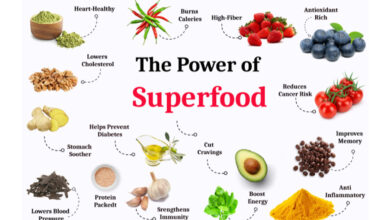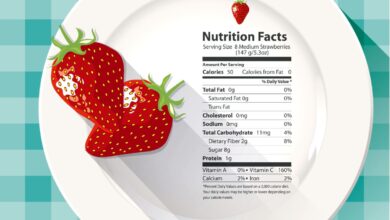
Fueling Success: A Guide to Nutritional Strategies for Peak Fitness
Introduction
Achieving peak fitness requires a combination of consistent training and optimal nutrition. Food serves as fuel for our bodies, providing the energy and nutrients necessary to support physical activity, enhance performance, and facilitate recovery. In this comprehensive guide, we’ll explore five key nutritional strategies to help individuals fuel their success in achieving peak fitness.
Understanding Macronutrients and Micronutrients
Macronutrients—carbohydrates, proteins, and fats—provide the energy and building blocks necessary for optimal performance. Carbohydrates are the body’s primary source of fuel, particularly during high-intensity exercise. Healthy sources of carbohydrates include whole grains, fruits, and vegetables. Proteins are essential for muscle repair and growth, making them crucial for individuals engaged in strength training or endurance activities. Lean meats, poultry, fish, eggs, and plant-based sources like beans and tofu are excellent protein options. Healthy fats, found in foods like nuts, seeds, avocados, and olive oil, support overall health and provide sustained energy.
In addition to macronutrients, micronutrients such as vitamins and minerals play essential roles in energy metabolism, immune function, and muscle contraction. Eating a varied diet rich in colorful fruits and vegetables ensures adequate intake of micronutrients, supporting overall health and fitness.
Pre-Workout Nutrition
Proper fueling before exercise is crucial for optimizing performance and preventing fatigue. The goal of pre-workout nutrition is to provide the body with readily available energy while minimizing digestive discomfort. Meals and snacks should be balanced and easily digestible, consisting of carbohydrates for energy and a moderate amount of protein for muscle support. Examples of pre-workout snacks include a banana with almond butter, yogurt with granola, or a turkey and avocado wrap. Timing is also important, with larger meals consumed 2-3 hours before exercise and smaller snacks consumed 30-60 minutes beforehand.
During-Workout Fueling
For prolonged or intense workouts lasting longer than 60-90 minutes, consuming carbohydrates during exercise can help maintain energy levels and delay fatigue. This is particularly important for endurance athletes participating in activities like long-distance running, cycling, or swimming. Sports drinks, energy gels, and easily digestible snacks like dried fruit or pretzels can provide a quick source of carbohydrates to fuel performance. Hydration is also essential during exercise to replace fluids lost through sweat and maintain electrolyte balance.
Post-Workout Recovery
Nutrition plays a critical role in the recovery process, helping to replenish glycogen stores, repair muscle tissue, and reduce inflammation. Consuming a combination of carbohydrates and protein within the first hour after exercise is essential for maximizing recovery and promoting muscle growth. Options include a protein shake with fruit, a turkey and vegetable stir-fry with brown rice, or Greek yogurt with berries and honey. Including sources of antioxidants, such as berries or leafy greens, can further support recovery by reducing oxidative stress and inflammation.
Hydration and Overall Health
Hydration is essential for overall health and athletic performance. Water is the best choice for staying hydrated, but electrolyte-rich beverages like coconut water or sports drinks may be beneficial during prolonged or intense exercise sessions. Monitoring hydration status by paying attention to thirst cues and urine color can help individuals maintain proper fluid balance. Adequate hydration supports cardiovascular function, regulates body temperature, and aids in nutrient transport and waste removal, all of which are vital for peak fitness and performance.
Conclusion
Nutrition is a cornerstone of peak fitness, providing the fuel and nutrients necessary to support training, enhance performance, and facilitate recovery. By understanding the role of macronutrients and micronutrients, implementing effective pre, during, and post-workout nutrition strategies, and prioritizing hydration, individuals can optimize their nutritional intake and fuel their success in achieving peak fitness levels. Remember, consistency and balance are key, and consulting with a registered dietitian or sports nutritionist can provide personalized guidance to support your individual fitness goals. With the right fueling strategies in place, you’ll be well-equipped to reach new heights of fitness and performance.
- Baby names starting with A
- Baby names starting with B
- Baby names starting with C
- Baby names starting with D
- Baby names starting with E
- Baby names starting with F
- Baby names starting with G
- Baby names starting with H
- Baby names starting with I
- Baby names starting with J
- Baby names starting with K
- Baby names starting with L
- Baby names starting with M
- Baby names starting with N
- Baby names starting with O
- Baby names starting with P
- Baby names starting with Q
- Baby names starting with R
- Baby names starting with S
- Baby names starting with T
- Baby names starting with U
- Baby names starting with V
- Baby names starting with W
- Baby names starting with X
- Baby names starting with Y
- Baby names starting with Z















